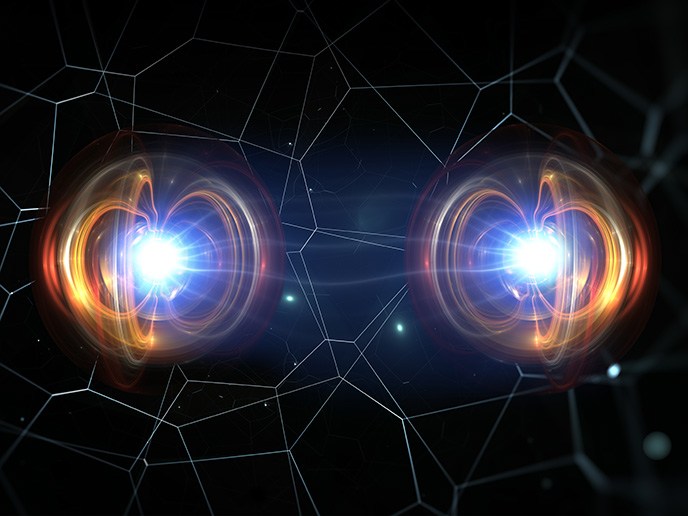Nobel-worthy research paves the way for new quantum technologies
European Research Council (ERC) grantees Alain Aspect and Anton Zeilinger have won the 2022 Nobel Prize in Physics. They share the award equally with a third laureate, John Clauser, for their “experiments with entangled photons, establishing the violation of Bell inequalities and pioneering quantum information science.” The three physicists’ independent research into quantum entanglement has opened the way for new technologies based on quantum information. In quantum mechanics, two or more particles can exist in an entangled state, where what happens to one of the particles determines what happens to the other particle regardless of how far apart they are. Known as quantum entanglement, this phenomenon was initially considered impossible, and scientists believed that there were “hidden variables” at work, influencing the results of their measurements. Then, in 1964, a physicist named John Bell developed a mathematical inequality to show that hidden variables do not, in fact, exist. In the early 1970s, American physicist John Clauser applied Bell’s theory. He showed that the photons in an entangled pair acted together despite being physically separated, proving that hidden variables could not explain the effects of quantum entanglement. However, there were still some loopholes after Clauser’s experiment.
Closing loopholes
In 1981, Alain Aspect devised an experiment that ruled out an important loophole in Bell’s test. By entangling two photons at a distance of 12 metres, he was able to show that the photons are not actually communicating with each other through hidden variables. Prof. Aspect received support for research building on this pioneering work through the EU-funded QUANTATOP (Quantum Atom Optics from Entangled Pairs to Strongly Correlated Systems) project that established basic tools for quantum optics experiments and single atom detection and manipulation.
Demonstrating quantum teleportation
Prof. Zeilinger expanded the use of entangled quantum states. In 1997, his research group demonstrated a phenomenon called quantum teleportation, in which entanglement makes it possible to move a quantum state from one particle to another a distance away. With ERC funding through the project QIT4QAD (Photonic Quantum Information Technology and the Foundations of Quantum Physics in Higher Dimensions), Prof. Zeilinger developed novel technologies for quantum information science, demonstrated new concepts for quantum computation and conducted fundamental experiments in quantum mechanics. Mariya Gabriel, European Commissioner for Innovation, Research, Culture, Education and Youth, noted in an ERC press release(opens in new window): “Congratulations to the new Nobel laureates! We are especially happy that Anton Zeilinger and Alain Aspect have been funded by the European Research Council. This was excellent news again, after yesterday’s Nobel Prize went to ERC grantee Svante Pääbo. So there are now three of this year’s laureates who have been substantially funded by the EU. It pays off to invest in top researchers and letting them follow their scientific curiosity!” ERC President Prof. Maria Leptin commented: “Warm congratulations to the winners! Both Anton Zeilinger and Alain Aspect have received support for their ground-breaking research from the European Research Council. So we now have twelve ERC grantees who went on to be awarded a Nobel Prize. It’s essential to give the brightest minds free reign to explore their best ideas.” For more information, please see: QUANTATOP project(opens in new window) QIT4QAD project(opens in new window)



